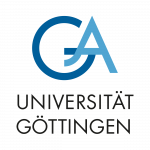- # Infoveranstaltungen intern
- # Ordnungsänderungen
- # Qualitätsrunden
- # Schon gewusst?
- Absolventenfeier
- Allgemein
- Anmeldezeiten Module
- Auslandsstudium
- Bachelor
- FlexNow
- Infos der Fachgruppe
- Klausureinsicht/Prüfungen
- Master
- Master KliPPT
- O-Phase für Erstsemester
- Pb-Stunden
- Praktika & Jobs
- Prüfungsamt
- Sprechzeiten/Urlaub/Krankheit
- Stundenplan
- Veranstaltung/Vortrag
- Wichtige Infos!
-
Archiv
-
Suche
-
Kontakt
-
Studiengangskoordination
und Fachberatung Psychologie
Dr. Nuria Brinkmann
Sprechzeiten: Die, Mi, Do 9 - 12 Uhr
Tel. +49 551 39 23652
Email Studienbüro Psychologie
Terminvergabe in Stud.IP -
Studiengangskoordination und Studienberatung Master Klinische Psychologie und Psychotherapie
Dipl.-Psych. Cornelia Bernardi-Pritzkow
=> Sprechzeiten
Email Studienbüro Klinische Psychologie und Psychotherapie
Tel. +49 551 39 29262
Terminvergabe in Stud.IP
Monatsarchive: Dezember 2019
TutorIn gesucht
Christina Keller: christina.keller@uni-goettingen.de
Veröffentlicht unter Praktika & Jobs
Kommentare deaktiviert für TutorIn gesucht
Stellenausschreibungen NTFN
Veröffentlicht unter Praktika & Jobs
Kommentare deaktiviert für Stellenausschreibungen NTFN
PraktikantInnen gesucht
Veröffentlicht unter Praktika & Jobs
Kommentare deaktiviert für PraktikantInnen gesucht
Studienbüro: Urlaub
Das Studienbüro ist vom 23.12.2019 bis zum 03.01.2020 geschlossen. Ich wünsche allen frohe Feiertage und einen guten Rutsch ins neue Jahr!
Veröffentlicht unter Sprechzeiten/Urlaub/Krankheit
Kommentare deaktiviert für Studienbüro: Urlaub
Weihnachtspause Prüfungsamt / Infopoint
Studienbüro, Prüfungsamt und Infopoint sind während der Weihnachtspause und über Silvester (23.12.2019 bis einschl. 03.01.2020) geschlossen. Der Infopoint ist bereits ab Montag, 16.12.2019 geschlossen. Die nächste reguläre Öffnungszeit ist am Montag, den 06.01.2020. In dieser Zeit können Unterlagen (Anträge, Abschlussarbeiten … Weiterlesen
Veröffentlicht unter Prüfungsamt, Sprechzeiten/Urlaub/Krankheit
Kommentare deaktiviert für Weihnachtspause Prüfungsamt / Infopoint
Studienbüro: Sprechzeit am 18.12.19
An diesem Mittwoch, den 18. Dezember, beginnt meine Sprechstunde wegen einer Sitzung erst um 10 Uhr und endet um 11:45 Uhr.
Veröffentlicht unter Sprechzeiten/Urlaub/Krankheit
Kommentare deaktiviert für Studienbüro: Sprechzeit am 18.12.19
Einladung zum Kolloquium
Dear colleagues, We (as the Department of Developmental Psychology) would like to invite you to a talk by Tobias Schuwerk (LMU München) on Thursday, 19 December 2019 at 12.15 (seminar room 2.111, Waldweg 26). In his talk, Dr. Schuwerk will speak about … Weiterlesen
Veröffentlicht unter Veranstaltung/Vortrag
Kommentare deaktiviert für Einladung zum Kolloquium
Weiterbildungsangebot PTT
Veröffentlicht unter Master, Praktika & Jobs
Kommentare deaktiviert für Weiterbildungsangebot PTT
PraktikantInnen gesucht
Veröffentlicht unter Praktika & Jobs
Kommentare deaktiviert für PraktikantInnen gesucht
PraktikantIn gesucht
Veröffentlicht unter Praktika & Jobs
Kommentare deaktiviert für PraktikantIn gesucht

